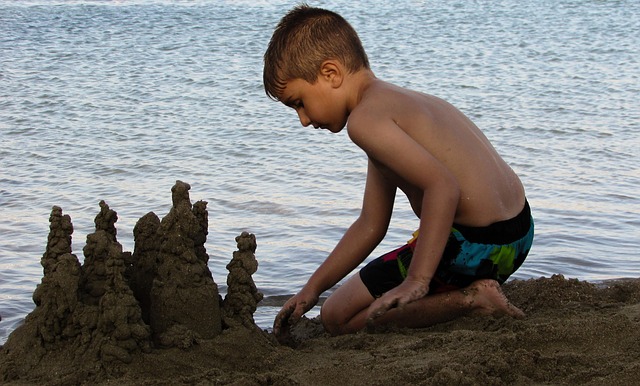When Kids Grow Up: How to Support Adult Children Without Hovering
 There’s no shortage of advice for managing the early years of parenting, but a child’s journey from late adolescence to early adulthood can be just as challenging for parents, maybe even more so. This stage often requires a significant shift in mind-set, as parents move from the front seat to the back seat of their child’s life. Growing research finds that adult children still benefit from parental involvement in these critical years; however, the type of involvement matters and should change from when they were younger.
There’s no shortage of advice for managing the early years of parenting, but a child’s journey from late adolescence to early adulthood can be just as challenging for parents, maybe even more so. This stage often requires a significant shift in mind-set, as parents move from the front seat to the back seat of their child’s life. Growing research finds that adult children still benefit from parental involvement in these critical years; however, the type of involvement matters and should change from when they were younger.
“For parents, the early years of adulthood, from ages 18-25, can feel like a stressful balancing act,” says Laura Padilla-Walker, a professor and associate dean in the College of Family, Home and Social Sciences at Brigham Young University. Her findings suggest that it’s important for parents to remove the scaffolding of their support gradually, which means helping a child when they need it, but being careful not to take over.
Although there’s no single perfect formula for establishing and maintaining boundaries with grown children, experts say there are ways to stay close in a healthy way as you step back.
Finding the line
Establishing boundaries can be hard for adult children who are closely attached to their parents. It’s the parents’ job to make the boundary-setting easier and to let their child know that it is healthy and normal to do so, says psychotherapist Robin Stern, associate director of the Yale Center for Emotional Intelligence.
Get on the same page. “When my children were teens, we had regular conversations about independence and boundaries and came up with solutions that worked for all of us,” Stern says. In high school, for example, Stern and her teens agreed on “destination calling,” where they’d check in when they were out at night with friends. When her daughter was pursuing a master’s degree and living alone in the Middle East, they agreed to touch base at least every other day.
Learn to cope with radio silence. It’s normal and necessary for kids to pull away as they go through the important developmental task of creating their own separate identity. Sometimes sporadic contact can be a signal that a child is wrestling with a difficult decision and wants to test their wings. Parents would do well to honor that privacy and not take it personally, says Jeffrey Jensen Arnett, a developmental psychologist at Clark University and co-author of the book “Getting to 30.” But, other times, he says, silence can be a warning sign, so trust your parental instincts and be ready to intervene if you suspect something dangerous or unhealthy is going on.
Help kids let go. Today’s adult children sometimes prefer to stay close to their parents. When a parent is more ready than the child to let go, Arnett suggests handling it gently so the child doesn’t feel rejected. Try moving some of the conversations to text, he says, which allows you to have more control over the frequency of contact.
From parent to mentor
It can be helpful for parents to think of their role evolving into more of a mentorship at this age, says developmental psychologist Richard Rende, co-author of “Raising Can-Do Kids.” “Mentors dispense perspective, encouragement and make suggestions on how to shape behavior, instead of trying to control it.”
Offer advice they’ll hear. In a heated moment, it’s easy to revert to our parenting muscle memory, Rende says. “It takes a deep dive on the parent’s side to recognize our impulse and get into the habit of dispensing perspective instead of making judgments,” he adds. One way to do this is by asking questions, which help bolster a young adult’s problem-solving skills rather than undermine them.
Bite your tongue. “It’s important to remember that adult children now get to make their own choices and parents have to, above all, honor that,” Rende says. It’s wise to make certain topics off-limits. Avoid making unsolicited comments about their personal habits, clothing, grooming and significant others.
Know when to intervene. There are times when a parent has a responsibility to speak up. Be sensitive in how you frame the conversation. First, acknowledge that you respect their independence and that what you are going to say may be hard for them to hear.
Excerpted from “When Kids Grow Up: How to Support Adult Children Without Hovering” in The Washington Post. Read the full article online for more details, including “rules for boomerang kids.”
Source: The Washington Post | When Kids Grow Up: How to Support Adult Children Without Hovering, https://www.washingtonpost.com/lifestyle/on-parenting/when-kids-grow-up-how-to-support-adult-children-without-hovering/2019/08/22/4919a56c-a70d-11e9-9214-246e594de5d5_story.html | © 2022 The Washington Post
Do you need someone to talk to? To schedule an evaluation or to get advice about your child’s or teen’s challenges, call or email a CHC Care Coordinator at 650.688.3625 or careteam@chconline.org CHC teletherapy services are available now.





